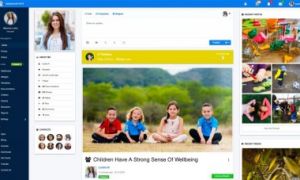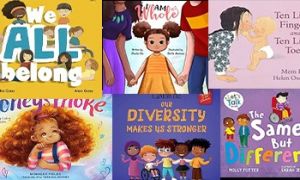

Learning stories are more than documentation; they are narrative windows into a child’s thinking, identity, relationships, and growth. When written with warmth, clarity, and sector‑savvy language, learning stories become powerful tools for advocacy, family connection, and pedagogical reflection. They honour children as capable, imaginative learners and make the invisible work of early childhood education visible.
This guide supports educators in writing learning stories that are purposeful, emotionally intelligent, and aligned with the EYLF.
If observations aren’t meant to be long, complicated, and constant, the next logical question is, why does the rest of the planning cycle feel so heavy?
Just like observations, the planning cycle itself is not the workload. The National Quality Framework gives us a simple, elegant loop: notice, plan, implement, and reflect.
What’s blown out of proportion are the performance tasks we’ve layered on top—multiple formats, duplicated evidence, tick‑box extensions, and reflections written to impress assessors rather than support children.
The problem isn’t Observe → Plan → Implement → Reflect.
The problem is everything we’ve added on top.
The observation cycle doesn’t need to be complicated. At its heart, it’s simply a way of noticing, understanding, and responding to children’s learning. These prompts are designed to support educators at every stage—keeping documentation meaningful, manageable, and connected to children’s identities.
EYLF Outcome 1 Floorbook prompts for identity, belonging, autonomy, emotional well-being, and empathy. Includes child‑voice questions, educator reflections, group prompts, and page starters.
Outcome 1 of the EYLF focuses on identity: a child’s sense of belonging, autonomy, emotional safety, and connection to others. Floorbooks are a powerful way to capture this learning because they centre children’s voices, make thinking visible, and document identity as it unfolds in real time.
A clear, practical EYLF Outcome 1 cheat sheet for educators, with examples, observation wording, and strategies to document children’s identity, belonging, autonomy, emotional well-being, and respectful relationships across daily routines.
Outcome 1 is the foundation of early childhood learning; everything else grows from here. It focuses on children’s identity: how they see themselves, how safe and supported they feel, and how they relate to others. When children experience belonging, security, autonomy, emotional well-being, and respectful relationships, they develop the confidence and resilience needed for all future learning.
This cheat sheet gives educators a practical, easy‑to‑use guide to understanding, observing, and documenting Outcome 1 across everyday routines. With clear indicators, real-world examples, and ready‑to‑use documentation prompts, educators can capture meaningful learning without unnecessary paperwork.
Building secure, trusting relationships is the heart of early childhood education, and EYLF Outcome 1.1 places this at the centre of children’s learning and well-being. Before children can explore, communicate, or engage confidently with others, they must first feel safe, supported, and emotionally held within their environment.
Learn how to understand, support, and document EYLF Outcome 1.1 with clear examples, practical strategies, and observation wording that help educators build secure, trusting relationships in early childhood settings.
Daily experience Journals are a cornerstone of communication between educators and families. They provide parents with a snapshot of what their children explored, learned, and enjoyed during the day. Yet, when working with a whole group, efficiency and clarity become essential.
“Thank You for the Memories” is a beautifully crafted end‑of‑year portfolio template designed to help educators farewell each child with warmth, gratitude, and a lasting memento of their time in care. Simple yet deeply meaningful, this template captures the emotional essence of early childhood education connection, belonging, and shared experiences.
Linking to the EYLF is one of the most misunderstood parts of early childhood documentation. Many educators feel pressured to attach outcome numbers to every observation, photo, or program entry even though this is not required by the National Regulations, the EYLF, or ACECQA.
This guide offers a clear, practical approach to linking that centres professional judgment, meaningful learning, and low‑paperwork practice. Instead of coding everything, educators can use linking strategically only when it genuinely supports planning, communication, or assessment.
A: No. There is no requirement in the National Regulations, the EYLF, or ACECQA guidance that says educators must add EYLF outcome numbers, sub‑outcomes, or codes to observations. Linking is optional, not mandatory.
Documentation should support children’s learning, not overwhelm educators. When linking becomes a tick‑box exercise, it loses meaning and adds unnecessary workload. This article breaks down what’s actually required, what’s optional, and how to use EYLF links only when they genuinely add value.
 As an Educator in Australia, your pay rate falls under the Children’s Services Award 2010. This award states the minimum amount that an employer can… Read More
As an Educator in Australia, your pay rate falls under the Children’s Services Award 2010. This award states the minimum amount that an employer can… Read More
 When working as a qualified Early Childhood Teacher (with a university degree) within a service, your rate of pay will come from the Educational Services… Read More
When working as a qualified Early Childhood Teacher (with a university degree) within a service, your rate of pay will come from the Educational Services… Read More
 When working as a Diploma Qualified Educator your pay rate is from the Children's Services Award 2010. This Award states your minimum rate of pay… Read More
When working as a Diploma Qualified Educator your pay rate is from the Children's Services Award 2010. This Award states your minimum rate of pay… Read More
 When working as a Cert 3 Qualified Educator, your pay rate is from the Children's Services Award 2010. This Award states your minimum rate of… Read More
When working as a Cert 3 Qualified Educator, your pay rate is from the Children's Services Award 2010. This Award states your minimum rate of… Read More
 Educational Leaders play a crucial role in their early childhood service by ensuring that the educational program aligns with best practices and supports the holistic… Read More
Educational Leaders play a crucial role in their early childhood service by ensuring that the educational program aligns with best practices and supports the holistic… Read More
 In early childhood education and care, ratios are more than a technicality—they are a frontline safeguard. Every child deserves responsive supervision, emotional connection, and developmental… Read More
In early childhood education and care, ratios are more than a technicality—they are a frontline safeguard. Every child deserves responsive supervision, emotional connection, and developmental… Read More
 Here’s a comprehensive Mobile Phone and Smart Watch Policy tailored for early childhood education and care (ECEC) services in Australia, aligned with the latest 2025… Read More
Here’s a comprehensive Mobile Phone and Smart Watch Policy tailored for early childhood education and care (ECEC) services in Australia, aligned with the latest 2025… Read More
 With the new national child safety reforms kicking in on 1 September 2025, early childhood services like yours have a real opportunity to lead the… Read More
With the new national child safety reforms kicking in on 1 September 2025, early childhood services like yours have a real opportunity to lead the… Read More
 The Sea of Fish Challenge is a national initiative that invites children, educators, families, and communities to create and display fish artworks as a symbol… Read More
The Sea of Fish Challenge is a national initiative that invites children, educators, families, and communities to create and display fish artworks as a symbol… Read More
 Across the early childhood education and care sector, educators are sounding the alarm: current staffing ratios are insufficient to deliver safe, meaningful, and developmentally appropriate… Read More
Across the early childhood education and care sector, educators are sounding the alarm: current staffing ratios are insufficient to deliver safe, meaningful, and developmentally appropriate… Read More

Assessment is a digital documentation tool designed for early childhood educators. It is created by...
See more...
Confrontation refers to coming “face to face” with another person and to bring up something...
See more...
Introducing diversity through books is a fantastic way to help children understand and appreciate different cultures...
See more...© 2009-2025 Aussie Childcare Network Pty Ltd. All Rights Reserved.

